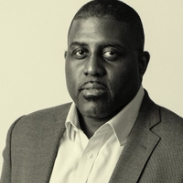 Artist rendering/Yazgan Design Architecture Artist rendering/Yazgan Design ArchitectureA consortium of investors broke ground on a proposed 12,000-capacity arena in Lagos late last month, teasing the prospect of Nigeria’s first purpose-built indoor venue for music concerts and sports events. The project is being led by Persianas Group, a real estate investor that operates supermarket stores and shopping malls in Nigeria. Its partners include two U.S. companies — Oak View Group, and Live Nation Entertainment — and the Nigerian Sovereign Investment Authority. The venue is expected to cost $100 million and is set to open in December 2025. Music is one of Nigeria’s biggest exports thanks to the country’s chart-topping Afrobeats stars. But while they sell out major venues like the O2 Arena in London, those artists and show promoters often struggle to find suitable spaces to hold concerts in Nigeria. They have often made do with generic large halls in big hotels, or open air parks and squares. A “music-first” arena presents an opportunity for artists to deliver performances to Nigerian audiences that have “been missing for a long time now,” said Tayo Amusan, chairman of Persianas Group in a statement. The Arena, whose construction is said to have started, is to be located in Lagos’s Victoria Island district that houses the city’s largest concentration of entertainment spots, from bars to nightclubs. Before now the best known purpose-built indoor entertainment venue was the National Theatre, which was opened in 1976 and hasn’t been modernized for decades.  Artist rendering/Yazgan Design Architecture Artist rendering/Yazgan Design ArchitectureInvestors hope the new venue will also attract big ticket indoor sporting events from basketball and boxing, to UFC and WWE fights. The initiative comes at a time when sporting leagues like the NBA are expanding their presence in Africa. The fourth season of the NBA’s Basketball Africa League (BAL) held its first ever game in South Africa on Saturday (Mar. 9). The Arena’s architects are Ankara, Turkey-based Yazgan Design Architecture, who also designed the BK Arena in Kigali, Rwanda. Opened in 2019, the 10,000-seater space hosted the BAL’s inaugural season three years ago. | 







